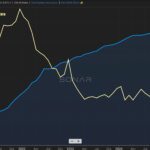Efforts to finalize a new six-year contract between workers at 36 ports along the East and Gulf coasts—from Maine to Texas—and container shipping companies came to a standstill on Tuesday after the union turned down a proposal involving automation. The International Longshoremen’s Association (ILA) ended discussions with the United States Maritime Alliance (USMX) due to the employer group’s insistence on including automation and semi-automation in its master contract terms, which the union argued would threaten union jobs.
Previously, in early October, the ILA and USMX reached a tentative deal on wage increases, following a three-day strike at East and Gulf coast ports. This tentative agreement included a 62% wage increase over the contract period and extended the master contract through January 15, 2025.
This week, both parties were set to hold four days of talks in New Jersey to resolve outstanding issues for the new six-year master contract. However, when the discussions began in Teaneck, New Jersey, the union reported that USMX reintroduced language regarding the use of semi-automated equipment at ILA ports. The ILA rejected this proposal, stating that it would lead to job losses for union workers.
“The ILA’s resolve remains strong not to surrender any ILA jobs,” the union said in its statement on Facebook. “We are disappointed that USMX would attempt to disregard our ILA’s well-known position opposing job-cutting automation and semi-automation. Once again, our employers who are raking in billion-dollar profits annually have exposed their ultimate goal of wanting to eliminate as many ILA jobs as possible, and replace our ILA longshore workers with robotic equipment.”
The ILA stated that its members fully back the union’s stance, emphasizing that the three-day strike in early October demonstrates their commitment to securing a fair and respectable contract. The union expressed hope that USMX will reconsider what it described as an “unwinnable strategy” and return to negotiations soon.
In a statement today, USMX commented, “While we had positive progress on a number of issues, we were unable to make significant progress on our discussions that focused on a range of technology issues. Unfortunately, the ILA is insisting on an agreement that would move our industry backward by restricting future use of technology that has existed in some of our ports for nearly two decades – making it impossible to evolve to meet the nation’s future supply chain demands”.
“The USMX has been clear that we are not seeking technology that would eliminate jobs. What we need is continued modernization that is essential to improve worker safety, increase efficiency in a way that protects and grows jobs, keeps supply chains strong, and increases capacity that will financially benefit American businesses and workers alike”.
“We look forward to resuming negotiations with the ILA.”
The October three-day strike at U.S. ports disrupted the nation’s supply chain, impacting trucking companies and truck drivers. In response, the American Trucking Association and other trade groups urged President Joe Biden to implement an 80-day cooling-off period, though he faced criticism for not stepping in to end the strike.
Meanwhile, strikes at Canadian ports have also affected supply chain flows between Canada and the U.S. On Tuesday, Canada’s Labor Minister, Steven MacKinnon, used federal authority to halt work stoppages at the ports of Vancouver, Prince Rupert, and Montreal, mandating binding and final arbitration between labor unions and port owners. Until a new agreement is reached, existing collective agreements will remain active.





